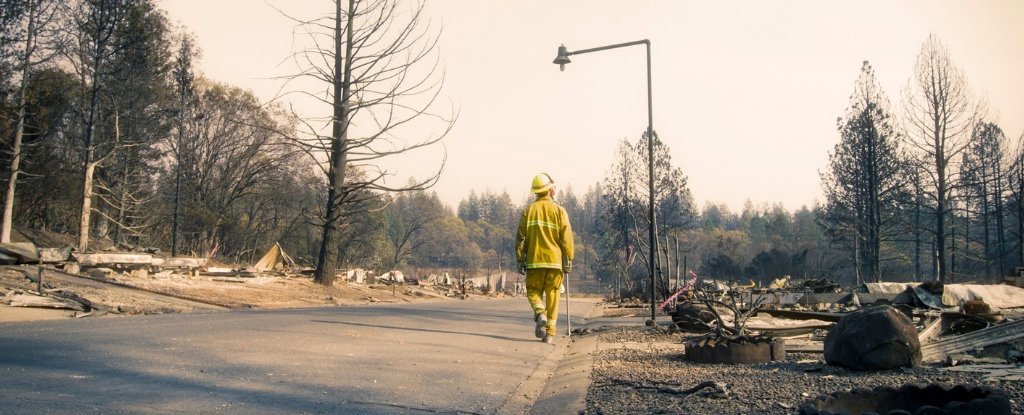
Experts Warn Climate Change Is Already Killing Way More People Than We Record
by CARLY CASSELLAPeople around the world are already dying from the climate crisis, and yet all too often, official death records do not reflect the impact of these large-scale environmental catastrophes.
According to a team of Australian health experts, heat is the most dominant risk posed by climate change in the country. If the world's emissions remain the same, by 2080 Australian cities could see at least four times the number of deaths from increasing temperatures alone.
"Climate change is a killer, but we don't acknowledge it on death certificates," says physician Arnagretta Hunter from the Australian National University.
That's a potentially serious oversight. In a newly-published correspondence, Hunter and four other public health experts estimate Australia's mortality records have substantially underreported heat-related deaths - at least 50-fold.
While death certificates in Australia do actually have a section for pre-existing conditions and other factors, external climate conditions are rarely taken into account.
Between 2006 and 2017, the analysis found less than 0.1 percent of 1.7 million deaths were attributed directly or indirectly to excessive natural heat. But this new analysis suggests the nation's heat-related mortality is around 2 percent.
"We know the summer bushfires were a consequence of extraordinary heat and drought and people who died during the bushfires were not just those fighting fires – many Australians had early deaths due to smoke exposure," says Hunter.
"If you have an asthma attack and die during heavy smoke exposure from bushfires, the death certificate should include that information," she adds.
Without those data, we'll never truly know the scale of what we are dealing with. But while it's possible to diagnose someone with a heart attack or cancer, it's much harder to draw links between climate events and human mortality.
The authors of the correspondence compare it to a lightning strike, which might cause a branch to fall on a person and kill them. The thing is, the resulting death certificate might not make any reference to the lightning at all, only the branch.
"Climate change is a concern to many people. But if the effect of extreme temperatures is not recorded, its full impact can never be understood," the authors argue.
"Death certification needs to be modernised, indirect causes should be reported, with all death certification prompting for external factors contributing to death, and these death data must be coupled with large-scale environmental datasets so that impact assessments can be done."
Such action, they say, is imperative. Not only for Australia but many other countries in the world. The United Kingdom has documented some problems with accurately filling out death certificates, and cities in several parts of the world are on track for similar heat-related mortality rates as Australia.
But there are some places that will need to do more than just update their current system. In the tropics, there's little valid mortality data on the more than 2 billion people who live in this heat-vulnerable region. And that makes predicting what will happen to these communities in the future much trickier.
"Climate change is the single greatest health threat that we face globally even after we recover from coronavirus," says Hunter.
"We are successfully tracking deaths from coronavirus, but we also need healthcare workers and systems to acknowledge the relationship between our health and our environment."
In an unpredictable world, if we want to know where we're going, we have to know where we've been. Figuring out how many of us have already died from climate change will be key to that process. We can't ignore it any longer.
The correspondence was published in The Lancet Planetary Health.